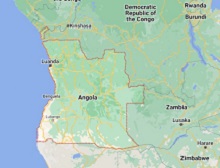The International Monetary Fund (IMF) advised Angola to fully implement the subsidy reform mitigation measures to support the vulnerable population.
“Fiscal slippage has reduced buffers and a sustained adjustment is required to mitigate risks. The authorities should continue to act swiftly to reverse the large fiscal slippage of 2022. To do so, it is critical to fully implement the subsidy reform announced on June 1 (with mitigation measures to support the vulnerable population),” the IMF said in a statement issued on Tuesday the executive board of IMF concluded its first post financing assessment discussions with Angola officials.
“In parallel, the authorities should also pursue tax policy measures to mobilize non-oil domestic revenue and make further progress on the fiscal structural agenda, including public financial management and public investment management reforms,” the IMF executives suggested in their assessment.
“Continued efforts are needed to bolster financial stability. Ongoing prudential reforms should continue to improve banking sector oversight and health. To safeguard market confidence and reduce contingent fiscal risks, the DGF needs to strengthen its financial and operational capacity, and the BNA should prepare for the decisive resolution or liquidation of problem banks, as necessary, while protecting only small depositors.”
“Maintaining focus on medium-term structural reforms is critical to maintaining growth in the context of a declining oil production. Lessening the dependence on the oil sector is critical and should remain the authorities’ medium-term focus, to reduce vulnerabilities arising from the increased volatility of this sector. Accordingly, continued efforts to strengthen governance, improve the business environment, and promote private investment are needed, guided by the authorities’ diversification plans, as well as strengthened macroeconomic and financial policies under the new National Development Plan (2023–27),” the IMF advised.
According to the IMF, a moderate fiscal adjustment is expected from Angola in 2023, in line with the budget, with a more significant adjustment expected in 2024 with the planned fuel subsidy reform.
“…With declines of both oil prices and production in the first half of 2023, exports and oil revenues declined, resulting in a weakness in the fiscal and external sectors, and a significant depreciation in the nominal exchange rate in June 2023. Following the strong nominal exchange rate depreciation and the partial removal of fuel subsidies, inflation increased in June, to 11.3 percent (from 10.6 percent); for the first time in 15 consecutive months; whereby the BNA (Banco Nacional de Angola) responded by tightening liquidity conditions,” it said.
Growth is expected to slow down to 0.9 percent in 2023 (due to an estimated weak oil production this year), before stabilizing at around 3.4 percent in the medium term, aided by the authorities’ structural reform and diversification agenda, according to the IMF. The Fund indicated that inflation is expected to increase temporarily in 2023/24 due to higher energy prices related to the fuel subsidy reform, and to ease thereafter.

